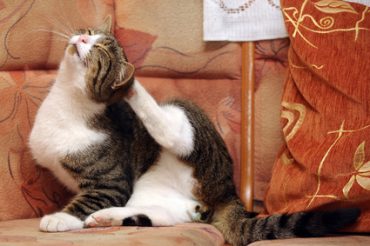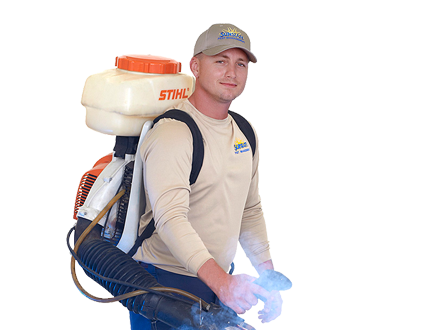

The flea is a small, wingless insect which feeds on its host blood, such as wildlife, domestic animal, and occasionally a human. Typically, fleas make their way to the inside of the home by way of a family pet. Complex flea infestations may appear to occur overnight. Eggs laid on pets are easily distributed throughout the home while the dog or cat scratches in hopes to relieve itching caused by irritating bites. Flea bites may not be painful and resemble a sole, elevated mark located on the skin which may become more inflamed and itchy.
Flea Infestation in Your Home
Fleas are not easily controlled by use of over the counter products due to the insect’s life cycle. If possible, rather than utilizing foggers and flea bombs, the ideal way to rid your home and pet of a flea infestation is with treatment by a long-acting insecticide, persistent vacuuming, and prevention. A veterinarian recommended product should be used for treatment and maintenance on pets with flea problems. Meanwhile, locations, where pets relax, should be laundered or vacuumed. Pay extra attention to the following areas:
When to Contact a Professional
Flea products purchased over the counter are regulated to ensure they are safe to apply by the consumer, with the assumption that the label is not always followed exactly as written by the average consumer. Due to this reason, and many others, OTC flea treatment products generally have a reduced life. When laundering and vacuuming do not work to stop the reproductive cycle, it is recommended to contact a professional pest control expert who will perform an aerosol or liquid flea treatment.
During Professional Flea Treatment
Before your flea treatment, your professional pest control expert will inform you must do. This typically includes vacuuming, laundering, preparation of rooms, and care for a pet.
You and your pets must leave the home during treatment for a few hours. To ensure maximum efficacy, a lasting flea control product is used.
After Treatment
Typically, an immediate decrease in the number of adult fleas results from a professional flea treatment. However, within 7-14 days following the treatment, it is common to see more fleas. At the time of the initial flea treatment, these fleas were in the “pupal” or pre-adult stage of development and did not have direct contact the long-lasting insecticide. Once coming in contact, these fleas should die within a few hours.
For more information on professional flea treatment, contact a professional pest control expert.
